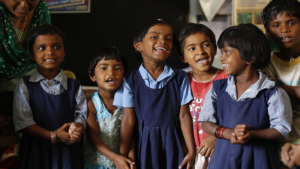GS II-EDUCATION

Why in News?
- Announced by PM Modi on Teachers’ Day (Sept 5, 2022) to transform 14,500 schools into model institutions aligned with the National Education Policy (NEP) 2020.
What is the PM SHRI Scheme?
- Objective: To empower students with 21st-century skills and provide high-quality, inclusive education.
- Key Features:
- State-of-the-art schools acting as NEP laboratories.
- Centrally Sponsored Scheme with a 60:40 funding ratio (Centre: States/UTs).
Key Features of PM SHRI Schools
- Improved School Infrastructure
- Early Childhood Care & Education (Balvatika, foundational literacy, and numeracy)
- Development of Green Schools
- Modern ICT-based Learning Facilities
- Student Well-being & Career Counselling
- Promotion of Sports & Arts
- Inclusive Infrastructure for Girls & Special Needs Students
- Encouragement of Mother Tongue & Local Languages
- Holistic, Integrated, Learner-Centred Teaching
- ‘School Quality Assessment Framework’ (SQAF) to Measure Progress
- Linking Schools with Local Entrepreneurs & Higher Education Institutions
Opposition to the Scheme
- States like Tamil Nadu, Chhattisgarh, and West Bengal oppose the centralized education system under NEP, arguing that education is a Concurrent subject.
Procedure for Selecting Schools
- Eligibility: Schools managed by Centre, State, UT, or local bodies with a UDISE+ code.
- Selection Process:
- Step 1: State must agree to fully implement NEP.
- Step 2: Schools meeting minimum benchmarks are shortlisted.
- Step 3: Inspection teams from State/KVS/JNV visit schools and recommend selections.
- Step 4: Expert committee makes the final decision.
- Limit: Max 2 schools per block/urban local body.
What is UDISE+?
- Unified District Information System for Education (UDISE) – Launched in 2012-13, it is one of the largest MIS on School Education.
Benefits of PM SHRI Scheme
- Model Schools: Showcase best NEP practices.
- Holistic Learning: Focus on experiential, toy-based, discovery-oriented methods.
- Mentorship: PM SHRI Schools will mentor other schools to spread NEP.
- Technology-Driven & Environment-Friendly Learning.
- Competency-Based Assessments: Conceptual understanding & real-life application.
- School Quality Assessment: SQAF will assess and enhance resources.
- Employment & Internships: Collaboration with Sector Skill Councils & Industry for better job opportunities.




